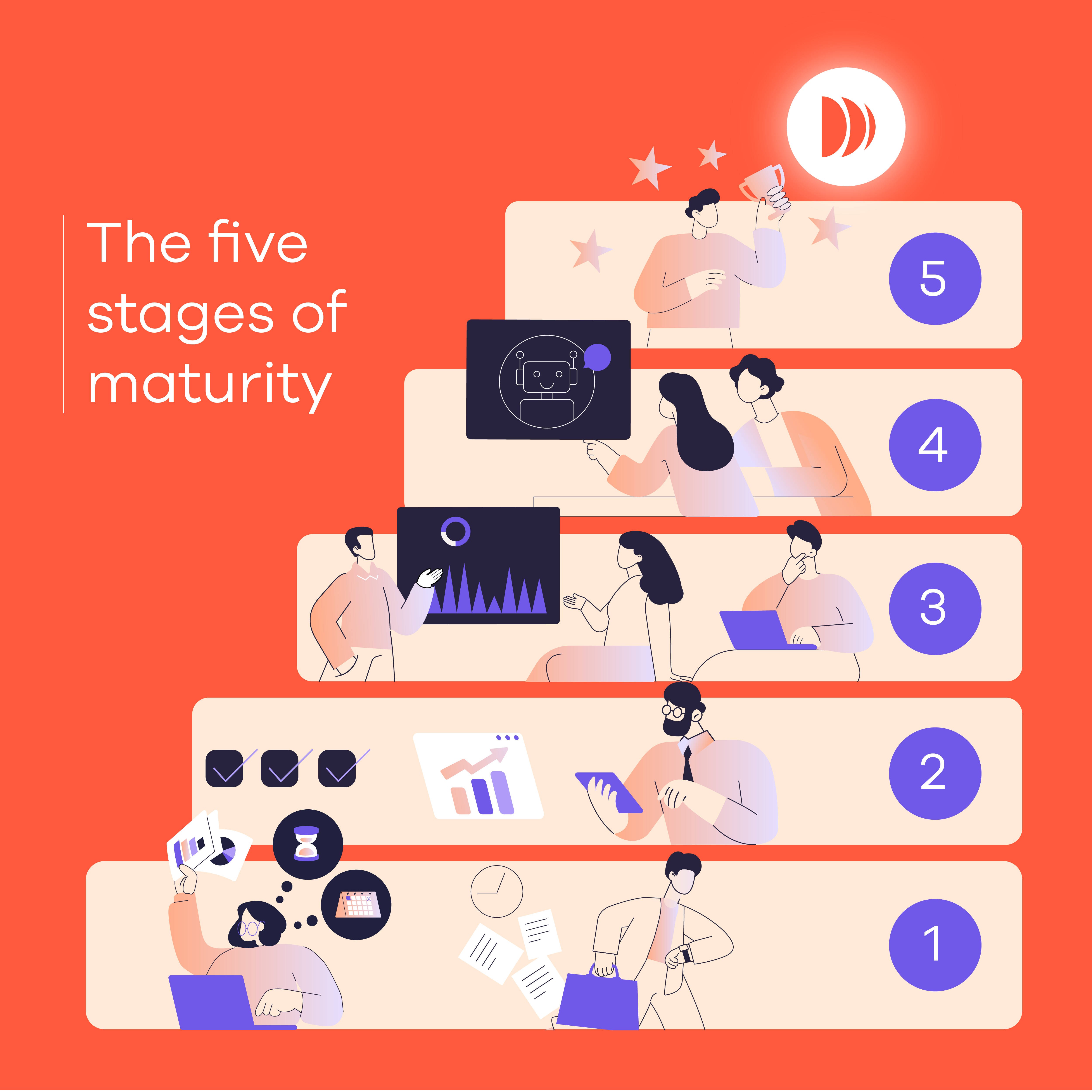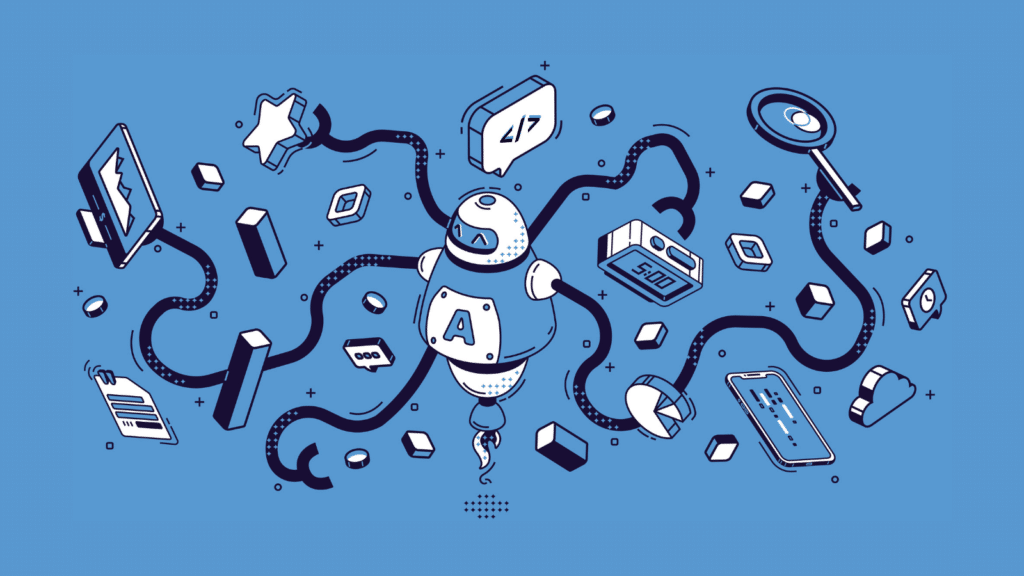Request a Dayshape demo
Get in touch and learn first-hand how Dayshape can help boost profitability, improve client service, and keep your teams happy.
Platform
Strategic resource management
Optimize margins. Grow revenue.
Plan reliably. Act confidently.
Inspire teams. Delight clients.
Enterprise scalability
Use Cases
How Dayshape helps firms
10 ways for resource managers to elevate their impact

Elevate your role, expand your influence, and drive impact across your firm.
Listen nowCustomer Success
Value at every stage
Company
More about Dayshape
Resources
Learn more
Resources
Featured resources
Resource Management Maturity

The complete blueprint to transform your resource management.
Learn moreThis article was sponsored by Dayshape and originally appeared on GoingConcern.com
As hardcore accountants, you and your talent probably aren’t suffering quite as much from the death of office culture as the rest of the world. How many of you really cared about the PR puff stuff that was a distraction and time suck?
However...
Even the most laser-focused, bottom-line-oriented accountant is missing something in his or her new pandemic work life. “Work hard, play hard” is now just “work hard alone in your apartment.” And in a lot of ways, it kinda sucks. The energy isn’t the same. The competition isn’t as obvious; the drive wanes when it’s just you.
Working from home might not be ideal for future CPAs, but what can we do about it?
The answer is, you have to do something. Accounting firms face a huge challenge right now of keeping talent. They can’t afford to have any more staff move on after they’ve gotten their CPAs. The office might have changed, but you still have to keep your talent happy.
The answer, according to experts at Dayshape, an AI-powered planning platform used by top 10 global firms, is to become a more sensitive, compassionate firm (Sensitive??? Stay with us. All will be explained.) while also delivering an office culture people actually like, making work the reward, and automating to make it all happen.
When you put energy into all four of these strategies, you’ll create a firm that talent will be scrambling over themselves to be a part of.
Let’s take a look at why these strategies are so important in our chaotic world.

Accounting firms aren’t well-known for their pronounced compassionate streak.
Not saying accountants aren’t compassionate. It’s just that you might call it a latent tendency in an environment driven by bottom lines. That needs to change because everyone, and I mean everyone, is feeling fragile right now. Let that emotionally loaded word sink in a minute.
Fragile?
Who wants to think they’re fragile when they built their career around 14-hour days and all-nighters during busy season? Accountants are anything but fragile.
Except that was before a pandemic forced us into home offices with no non-Zoom colleague interaction whatsoever. Now, we’re all a little bit fragile, including partners, and the sooner we accept that, the sooner we can create a strategy around it.
A strategy could be as simple as asking, “How are you?” but going a little further, pressing after the typical “Fine” answer and letting your team know that they can tell you how they’re really doing.
If this sounds like an infantile strategy to retain talent, you’re thinking from the pre-pandemic mindset. In a pandemic mindset, you can’t underestimate the power of relating emotionally, because we’re all starved for connection right now.
If you’re sitting in your apartment with your cat, staring at a screen all day, and someone asks with real curiosity how you’re doing, that jolt of warmth will stand in for the late-night pizza and coffee breaks. A little genuine human compassion goes a long way.
Learn this valuable skill, make your firm known for it, and talent will lean in your direction because they won’t be able to help themselves.

Whether your office culture was legendary like at WeWork, or a fairly normal culture centered around impromptu singalongs of Toto’s 1982 pop classic “Africa” and an easygoing “ask anything” policy, no doubt you had at least some culture back at your brick-and-mortar office. A culture that’s been replaced by the incessant chirping of crickets as you sit in the blue glow of your screen entering figure after figure into endless spreadsheets.
Instead of impromptu singalongs, office culture now has to be a little more planned.
Keeping a dedicated “random” channel going with aimless chatter about everything from how funny clients can be on Zoom to the huge number of tax returns you snatched up on your last game of “Zombie Accountant” provides a good release from monotony.
You might even find this random channel facilitates a broader conversation than what was possible in pre-COVID days when the chatter often occurred among the same people. Could the work-from-home culture actually be more inclusive, less cliquish than the pre-COVID office? Hey, why not? Accountants like silver linings as much as the next person.
Because most of our hours on Earth are spent either sleeping or working, your talent needs to have happy feelings on their commute to the office.
Of course, in COVID times, there’s no office and no commute so … what now?
What’s the point of work? Money? Yes, duh! But there’s also that special something that gets the accountant’s heart involved. For many accountants, pre-pandemic, it was the fact that there was a home away from home with a culture that they could count on. Now that everybody’s actually home, something else has to spark that feeling. More than ever, that thing has to be the work itself. Not just the money (we already know how everyone feels about that) but the type of work.
Any CPA can tell you that certain projects grab us by the gonads more than others. Who in your firm likes to work for nonprofits? Who gets excited about seeing a brand-new startup on its way? Now is the time to focus on giving your talent the work that makes them wake up, take notice, and care.
Fairer, better, more relevant projects for everyone, women and minorities included, is crucial at a time like this. The firms that are known for making tailored job assignments are the firms that will get and keep the talent.

Automation can help you achieve all the above.
According to Andrew Bone, CEO and co-founder of Dayshape, there are a lot of misconceptions when it comes to automation:
“People hear automation, and they worry about biases being reinforced. But automation in scheduling can actually take bias out of the equation by ensuring work is assigned based on predetermined criteria like skills, certifications, or independence requirements—not based on who you know or don’t.”
Automation can help ensure that your talent is getting better, more relevant assignments that are spread out over the team, limiting burnout. Automation also frees up time by taking over repetitive tasks that don’t need human input and accomplishing other tasks like budget tracking more efficiently.
This freed-up time can be used to check in more often with your team to make sure no one’s about to plunge off a cliff… or bolt to the cooler firm on the other side of the world.
Get the latest insights and updates delivered to your inbox weekly.
Explore our latest insights and strategies for success.

4 min read

8 min read

5 min read
Discover how AI can transform your resource management and enhance your project delivery.

Get in touch and learn first-hand how Dayshape can help boost profitability, improve client service, and keep your teams happy.
